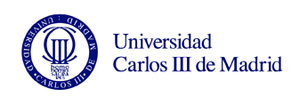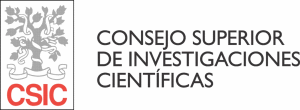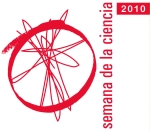Next annual conference:
International Conference on Science in Society
The Science in Society Conference 2010
Welcome to the website of the Second International Conference on Science in Society, to be held at the Universidad Carlos III de Madrid, Madrid, Spain from 11 to 13 November 2010. This Conference will address disciplinary and interdisciplinary challenges in the sciences, and in particular the relationships of science to society.
Key themes addressed by the Conference include the social impacts of science, the values and ethics of science, the pedagogies of science, the knowledge-making processes of science, the politics of science and the economics of science. At first glance, the scope and concerns of the Conference are enormous. However, in contrast to conferences with a specialist disciplinary focus, this Conference aims to explore, in an interdisciplinary spirit, linkages between different areas of concern and practices of investigation. We welcome presentation proposals which range from broad explorations of philosophical, theoretical, methodological and policy questions, to proposals which present finely grained evidence of the connections of science to society in microcosms of research, teaching and practice.
Participants at the Conference will include researchers, teachers, administrators and policy makers from the basic natural-physical sciences, the applied sciences, the social sciences, history and philosophy of science, the humanities, and the professions.
Plenary speakers will include some of the world’s leading thinkers in the various fields which are concerned with the relationships of science to society, as well as numerous paper, colloquium and workshop presentations by practitioners, teachers and researchers.
Participants are welcome to submit a presentation proposal either for a 30-minute paper, 60-minute workshop, or a jointly presented 90-minute colloquium session. Parallel sessions are loosely grouped into streams reflecting different perspectives or disciplines. Each stream also has its own talking circle, a forum for focused discussion of issues. For those unable to attend the Conference in person, virtual participation is also available.
We encourage all presenters to submit written papers to The International Journal of Science in Society, a fully refereed academic Journal. Virtual participants may also may also submit papers for consideration by the Journal. All Conference participants who have finalised their registration will receive a complimentary online subscription to the Journal. This subscription is valid until one year after the Conference end date.
If you would like to know more about this Conference, bookmark the Science in Society site and return for further information-the site is regularly updated. You may also wish to subscribe to the Conference and Journal Newsletter.
For all inquiries, please contact the Conference secretariat.
The International Journal of Science in Society
Conference participants may submit papers to the Science in Society Journal, before the Conference and up until one month after the Conference. Papers submitted for publication will be fully refereed. The publication decision is based on the referees’ reports.
For those unable to attend the Conference in person, a virtual registration will provide participants access to the electronic version of the Journal, as well as the option to submit papers to the Science in Society Journal.
For more information about the Journal please visit the Publish Your Paper page.
Supporters
|
 The Forum for the Future of Public Education, housed in the College of Education at the University of Illinois-Urbana-Champaign, is a strategic initiative designed to engage academics, practitioners, policy makers, business and community leaders, and others in reflective dialogue and to encourage research on key policy issues influencing the future of public schools, colleges and universities. Pivotal to the Forum’s agenda are questions of access, equity, affordability, accountability, and responsiveness at all levels. The ultimate mission of the Forum is to enhance the dialogue around the future of education by injecting credible and timely information into the public debate. The Forum for the Future of Public Education, housed in the College of Education at the University of Illinois-Urbana-Champaign, is a strategic initiative designed to engage academics, practitioners, policy makers, business and community leaders, and others in reflective dialogue and to encourage research on key policy issues influencing the future of public schools, colleges and universities. Pivotal to the Forum’s agenda are questions of access, equity, affordability, accountability, and responsiveness at all levels. The ultimate mission of the Forum is to enhance the dialogue around the future of education by injecting credible and timely information into the public debate. |
|
 |
|
 Universidad Carlos III (UC3M) is a public university characterized by its strong international focus, the quality of its faculty, excellence in research and commitment to society. Universidad Carlos III (UC3M) is a public university characterized by its strong international focus, the quality of its faculty, excellence in research and commitment to society.
UC3M is a young institution, founded in 1989, but in a short time its achievements have placed it among the top universities in Spain:
Universidad Carlos III de Madrid is a public university characterized by
For more information on Universidad Carlos III de Madrid please download the following information from this link. http://science-society.com/files/2010/10/presentacion20corporativa_ingles.pdf |
|
 This conference has been partially supported by funds coming from the project FFI2008-03599 – Philosophy of Human and social Technosciences (Institute of Philosophy, Spanish National Research Council – CSIC, Ministry of Science and Innovation) This conference has been partially supported by funds coming from the project FFI2008-03599 – Philosophy of Human and social Technosciences (Institute of Philosophy, Spanish National Research Council – CSIC, Ministry of Science and Innovation) |
|
 |









